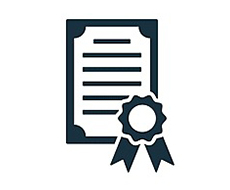
Take the first step towards your
goal by filling out the form above.

Get a call from our
certified expert.

Get the job done and
receive a certification.
A legal notice to collect money is a formal announcement between two persons to warn each other before legal action is taken to collect payment. Believe it or not, you can also send legal notices to recover money from your friends in case they owe you a lot. In order to recover money from a people, the role and importance of legal notice in debt collection becomes important. Legal notices for due recovery can be submitted to anyone, from merchants to employees, renters, friends, companies, banks, etc.

It offers the possibility of amicable and fast dispute resolution without court proceedings, which saves the parties money and court time.

This serves as a final warning and clarifies the sender's intent to take legal action if the request is not fulfilled as per the requirement.

This serves as a evidence in court that the other party was informed in advance of the grievances and disputes but was unable to reach a settlement. And it is also mandatory to send a legal notice before filing a lawsuit for certain offences.

It also gives parties a fair chance to resolve their dispute through negotiation, mediation, or arbitration without taking the matter to court.
In case if tenants don’t pay the rent to the landownerand as a result a large sum of money is accumulated which the landowner is entitled to receive.
In case if an employee flees with the money, a domestic enquiry will be initiated and once it is proven that he/she has left your company, you can send a legal notice to the employee to get your money back.
In case if an employer withholds an employee's legitimate salary then legal notice for recovery of dues for salary can be send.
In business mostly Deposits from dealers and distributors is kept in the form of postdated cheques. And if these cheque bounces then the drawee cansend a legal notice for recovery of money within 30 days from the date of receipt of return slip from the bank.
In case if a friend owe you then you can send legal notice recovery of due/money.

When a Due Recovery Notice is received in India, the recipient should take immediate action to resolve the issue and avoid further legal consequences. This may include negotiating a payment plan with the lender or seeking legal advice if necessary.
The legal consequences of failing to repay debts mentioned in a Due Recovery Notice in India can include seizure of assets, wage garnishment, or legal action, depending on the circumstances of the case. The borrower should seek legal advice to understand their options and the best course of action in such a situation.
A Due Recovery Notice should not be issued for a debt that has already been paid. If a person or entity receives a notice for a debt that has already been paid, they should provide proof of payment and dispute the notice with the party that issued it.
A Due Recovery Notice is a formal demand for payment of a debt that has become overdue, while a Demand Notice is a more general notice that may be used for a variety of purposes, such as demanding payment or demanding that an action be taken.
If a payment is made after a Due Recovery Notice has been issued, it will typically be applied to the debt in accordance with the terms of the original agreement between the parties. The recipient of the notice should provide proof of payment and dispute the notice with the party that issued it if necessary.
A person or entity can ensure that a Due Recovery Notice is compliant with Indian law by consulting a legal professional, familiarizing themselves with the specific requirements of the jurisdiction in which the debt was incurred, and adhering to the principles of fairness, transparency, and respect for the rights of the recipient.